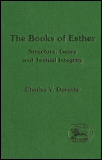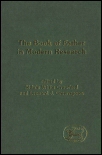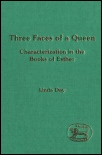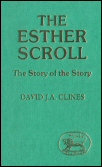Studies on Esther (4 vols.)
Digital Logos Edition
Overview
Esther tells the captivating story of a Jewish child who became queen of an empire and saved her people from destruction. It is the only book in the Bible which does not mention God by name. Yet God is present throughout the story—operating providentially, sustaining his people in exile.
Studies on Esther (4 vols.) aims to understand the book of Esther more clearly—its origins, its inclusion in the canon, and its modern place in the interpretation of Scripture. The authors assess the story of Esther, examine its vocabulary, explore its textual traditions, and attempt to understand the history of interpretation of Esther. They also reassess the relationship between Esther and other literature of the time, shedding light on the origins of Esther.
With the Logos Bible Software edition, all Scripture references are linked to the original language texts and the English Bibles in your library. By employing the advanced search features in Logos, you can find the exact topics, Scripture references, and subjects you’re looking for. With Logos, every word is essentially a link. All references to the text of Esther are automatically linked to the Hebrew texts and English Bible translations. Clicking on any word in any language automatically opens your preferred lexicons and searches for the corresponding entry. That makes the Logos edition the most accurate and efficient way to study the book of Esther.
Studies on Esther is a vital addition to the libraries of biblical scholars and historians of the Near East. This collection will benefit pastors who are preaching on Esther, Bible study leaders, and students of the Old Testament.
This title is included in the following collections
You can save when you purchase this product as part of a collection.
Logos 8 Messianic Jewish Diamo...
$2,999.99$2,999.99Logos 9 Messianic Jewish Diamo...
$2,999.99$2,999.992025 Messianic Jewish Portfoli...
$4,749.99$3,562.49Verbum 8 Portfolio Legacy Libr...
$4,749.99$4,749.99
- $4,999.99
- $7,749.99
- $23,999.99$17,999.99
- $21,749.99
- $24,999.99

Key Features
- Incorporates contributions from top scholars of the past decade
- Ideal for Bible study, sermon preparation, and scholarly research
- All Scripture references linked to the Bibles in your library
Product Details
- Title: Studies on Esther
- Volumes: 4
- Pages: 1,268
Individual Titles

The Books of Esther applies form-critical tools to the Septuagint and non-Septuagint (“Lucianic”) Greek texts of Esther. Differences in vocabulary, content, and style show that the Greek books of Esther are independent traditions stemming from, and aimed at, two distinct religious communities. The “Lucianic” version appears more personal, orthodox, nationalistic and Jewish. Its audience is Palestinian and it intends to foster communal identity. The Septuagint version breathes a more matter-of-fact, reportorial, Hellenistic style, with an eye to tolerance of heretics and audience entertainment. The Masoretic version became canonized because it is the most multivalent of the Esthers, appealing to both religious and secular elements of Judaism.
The most thoroughgoing examination of the Greek and Hebrew texts and wholes, and will notably advance the study of this intriguing book.
—Expository Times
Charles V. Dorothy was an Old Testament scholar before his death in 1996.

The proceedings of a symposium entitled Esther 2000 held in Lincoln and Omaha, Nebraska in April 2000, the book contains a collection of essays that engage all aspects of the biblical book of Esther. From questions of textual criticism to the history of rabbinic interpretation, to speculation on the modern form of commentary, this collection is sure to contain something for everyone interested in the book of Esther. Contributors include such well-known Esther scholars as Michael Fox, David Clines, and Carey Moore.
Contributions to this volume include:
- “It Takes a Village to Produce a Commentary: A Case in Point,” Carey A. Moore
- “The Book of Esther: Writing a Commentary for a Jewish Audience,” Adele Berlin
- “Esther and the Future of Commentary,” David J. A. Clines
- “Esther in Text- and Literary-Critical Paradise,” Kristen De Troyer
- “Three Esthers,” Michael V. Fox
- “Esther and Judith: Contrasts in Character,” Sidnie White Crawford
- “Esther’s Volkcentrism and the Reframing of Post-Exilic Judaism,” Timothy S. Laniak
- “Double Take: Another Look at the Second Gathering of Virgins of Esther 2.19a,” Elizabeth Groves
- “Kosher Adultery? The Mordecai–Esther–Ahasuerus Triangle in Talmudic, Medieval and Sixteenth-Century Exegesis,” Barry D. Walfish
- “Images and the Book of Esther: From Manuscript Illumination to Midrash,” Ori Z. Soltes
- “The Ecumenical Esther: Queen and Saint in Three Western Belief Systems,” Judith S. Neulander
- “Reading a Text Backwards: The Book of Esther and Nineteenth Century Jewish American Interpretations,” Scott M. Langston
- “From Maidens and Chamberlains to Harems and Hot Tubs: Five Hundred Years of Esther in English,” Leonard J. Greenspoon
The work is neatly arranged into categories and sections covering similar themes, and gives the reader a very good impression of many aspects of research into the book of Esther. . . . For anyone interested on the study of the book of Esther, this is an excellent collection.
—Reviews in Religion and Theology
The entire collection attests to the richness of the story of Esther and to its timeliness in today’s world, as many people wrestle with questions of identity and faithfulness in the midst of alienation and assimilation.
—The Catholic Biblical Quarterly
Leonard Greenspoon is the holder of the Klutznick Chair in Jewish Civilization at Creighton University.
Sidnie White Crawford is Professor of Hebrew Bible and Chair of the Classics and Religious Studies Department at the University of Nebraska-Lincoln.

This original study offers, for the first time, an analysis of the characterization of Esther as she is portrayed in each of the three primary versions of the book of Esther—the Masoretic text, the Septuagint text, and the Greek text. This study of characterization has implications beyond itself. It permits a reassessment of relations between the book of Esther and other literature of the time, it sheds light on the place of origin of the ancient versions of Esther, and it raises serious feminist and canon-critical questions about the role of the book.
Linda Day is Assistant Professor of Hebrew Bible at Pittsburgh Theological Seminary, Pittsburgh, Pennsylvania.

The book of Esther emerges from complex origins. According to David J. A. Clines, the story combines elements from numerous literary, textual, and storytelling traditions. Through the telling and retelling of the story, the book as it appears in the modern canon slowly emerges. In this volume, Clines uncovers this fascinating history by examining the literary and textual elements of the book, the shape of the story, and the shifts in meaning as new generations have retold the story and interpreted it for their own time.
David Clines is Professor of Biblical Studies and Head of Department in the University of Sheffield.